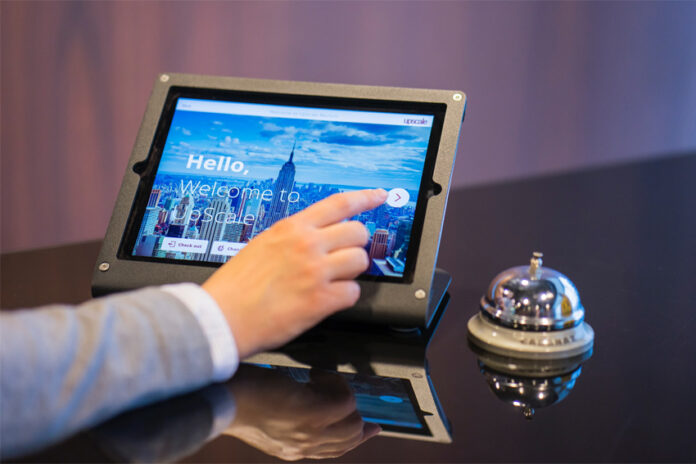
Without question, 2020 has been a completely different year from any other. The “new normal” brought by the COVID-19 pandemic has led to a series of contrasts to the hospitality industry compared to pre-COVID times. With this in mind, there is a need to review the emerging trends and realign the industry accordingly.
Like other previous crises, the novel COVID-19 pandemic disrupted the hospitality industry. Hoteliers have to grapple with new challenges that didn’t exist previously. Business models of yesteryears may be obsolete today, while plans for tomorrow may require continuous course corrections.
However, despite the negative effects that followed, there are always new opportunities to grasp. It’s time for the hospitality industry to come up with new strategies, cross-department teamwork, and technology that can help it resume business with new efficiencies to give their customers new experience.
Hotels are naturally resilient. They have survived previous massive catastrophes like terrorist attacks, natural disasters, and serious economic downturns. From such tragedies, hoteliers usually adapt, re-strategize, deliver to their guests, and run their operations.
Even amidst the raging Coronavirus pandemic, the hospitality industry has demonstrated similar resilience. All the same, this can get better with new technologies on board, specifically designed for the hospitality industry. The following are the latest technology trends that will shape the hospitality industry in 2021.
Contactless technology
As a way of minimizing contact to curb the spread of the COVID-19 virus, hotels should launch strict adherence to social distancing and sanitization protocols. This is one way to make their guests feel safe while following local health guidelines. Hoteliers will have to eliminate common touchpoints for both staff and guests, replacing them with contactless solutions.
To make this work, some hotels have already invested in robots, which they use to clean hallways and to run quick errands to and from guest rooms. This limits contact during this pandemic while offering an additional ‘tech hand’ to meet some guest requests.
Besides, robots don’t get tired so they can work a few more times without overburdening the housekeeping staff. Some hotels have also installed voice and AI-powered devices to avoid touching certain items within their premises like thermostats, phones, clocks, or lights.
With the ‘new normal’ of social distancing, most hotels are running with fewer staff on property. Including a hands-free digital support that works around the clock is one of the tech trends to watch in the hotel industry in the coming year.
Mobile first experience
The mobile-first and digital experience is another emerging trend in the hospitality industry. Hoteliers expect both their guests and staff to play right into the safe and clean environment. Many hotels are already digitizing their services or amenities to allow their guests to enjoy complete autonomy over their experience while offering high-touch service without giving physical touch.
This trend puts hoteliers in a suitable position to tap on the power of their personal devices and mobile applications, which their staff can use to serve guests. To minimize physical contact and actuate social distancing policy, guests are becoming used to digitized booking and check-in, payments, menus, restaurant ordering, concierge services, and many more.
The mobile-first technology is an important shift as mobile technology is today part of everyone’s life. Delivering a new guest experience, it can also lead to incremental revenue opportunities.
TV Casting
As hotels grapple with the ‘new normal’ of a contactless, frictionless guest experience, there is an urgent need to redefine the traditional, high-touch, in-room fixtures. The objective is to meet the protocols for the pandemic and to ensure the safety of the guests.
For instance, some reports have shown that the TV remote control is one of the trickiest items in terms of cleanliness and sanitization. To deal with this issue, some hotels have embarked on TV casting as the solution for in-room guest entertainment. (Source: Inside Edition)
Instead of using the remote and manually typing their passwords and usernames for streaming services, guests can easily cast their favorite content right from their tablets or smartphone.
Fast (and reliable) internet
Currently, hoteliers are making every effort to impress and attract their potential guests and maximize occupancy. In some cases, hotels are redefining the available space to serve both overnight guests and those who might seek daytime services and amenities.
This might call for some rooms being offered as momentary offices for guests who would like to work away from the distractions of their homes. Disasters like wildfires and hurricanes have also displaced a good number of people who might want to transition to hotels for accommodation.
With more guests streaming into hotels, there’s a need to provide reliable and high-speed internet access to visitors. Besides, the Internet of Things (IoT) is another emerging technological trend in the hospitality industry. This technology involves expanding internet connectivity to objects, devices, and appliances.
In the hospitality sector, IoT can be used to collect data, communicate, or interact over the internet. With this technology, previously unintelligent devices become ‘smart’ and semi or fully autonomous. This has worked well in internet-enabled thermostats or lighting systems.
Final Thoughts
As the pandemic persists, the hospitality industry needs to adopt new technologies to match the prevailing circumstances. With the safety and experience of guests in mind, these trends provide active guidelines for hotels to reengineer their operations to match the demands of a fast-changing future.











